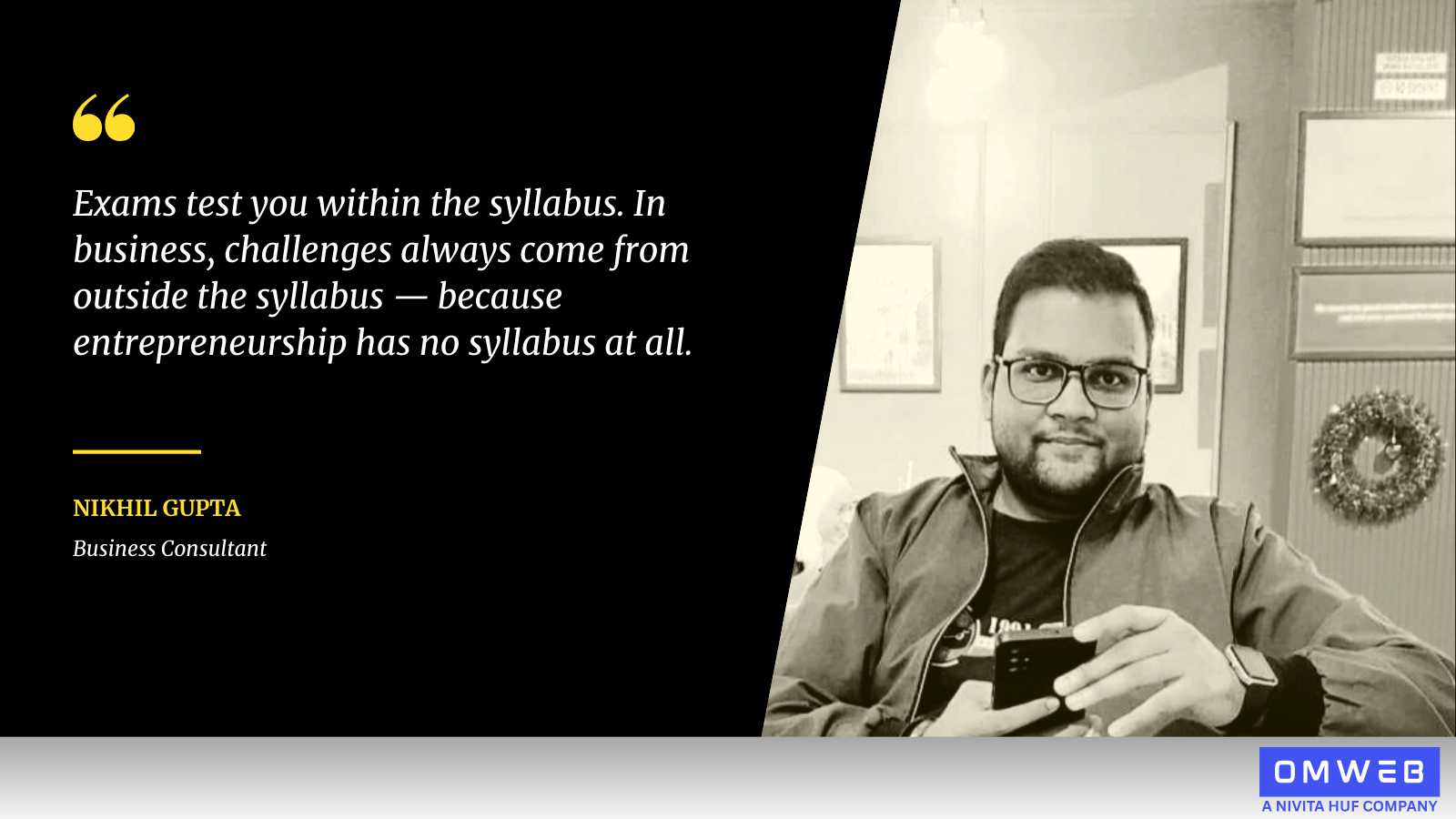When we talk about difficult exams in India, the UPSC Civil Services Examination (IAS/IPS) often tops the list. With its vast syllabus, intense competition, and years of preparation required, it’s rightly regarded as one of the most challenging academic pursuits in the country.
Yet, if UPSC is the toughest exam in India, then entrepreneurship is the toughest exam in the world.
Unlike UPSC, entrepreneurship comes with no defined syllabus, no fixed exam date, and no guarantee of results. As Nikhil Gupta, founder of OMWEB, puts it:
“Exams test you within the syllabus. In business, challenges always come from outside the syllabus — because entrepreneurship has no syllabus at all.
Entrepreneurship: The Exam With No Syllabus
Entrepreneurship, by contrast, is an ongoing examination with no clear syllabus, no sample papers, and no final results.
-
No predictability: Markets shift, competitors emerge, technology changes, customer needs evolve overnight.
-
Wider skillset: An entrepreneur must juggle finance, sales, operations, marketing, product design, leadership, and more — often simultaneously.
-
Uncertain outcomes: Even with years of effort, there’s no guarantee of success. Timing, execution, and external forces play decisive roles.
-
High stakes: Unlike exams where the cost of failure is time, entrepreneurship often involves financial losses, reputational risks, and emotional strain.
In short, while UPSC asks, “Did you prepare the syllabus?”, entrepreneurship constantly asks, “Can you solve what’s not in the syllabus?”
The “Out of Syllabus” Nature of Business
Every entrepreneur has faced this:
-
A regulatory change that disrupts the business model.
-
A sudden shift in consumer behavior.
-
A competitor launching an unexpected innovation.
-
Global factors — from economic downturns to pandemics — reshaping the market overnight.
No textbook prepares you for these challenges. Unlike in exams, where “out-of-syllabus” questions spark protests, in business they are the norm.
Toughness: Different But Comparable
To be clear, this is not to diminish the effort of UPSC aspirants. Cracking the exam demands discipline, consistency, and brilliance. But the comparison highlights a truth:
-
UPSC has structure, entrepreneurship has chaos.
-
UPSC ends with a result, entrepreneurship is a lifelong test.
-
UPSC tests knowledge, entrepreneurship tests resilience.
Both are tough in their own ways, but when we consider unpredictability and risk, entrepreneurship arguably sits higher.
Final Thought
For anyone preparing for UPSC, the exam may feel like the ultimate challenge. But for those who step into the world of startups and business, it soon becomes clear:
Entrepreneurship is not just an exam — it’s the exam of life.
Because in this exam, there is no syllabus, no fixed timetable, and no final result card. Only the ability to adapt, persevere, and keep learning defines who passes.


